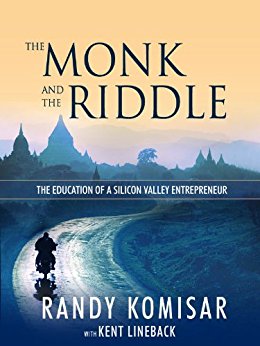Book Description
“Why do only a few people get to say “I love my job?”
It seems unfair that finding fulfillment at work is like winning a lottery; that only a few lucky ones get to feel valued by their organizations, to feel like they belong.
Imagine a world where almost everyone wakes up inspired to go to work, feels trusted and valued during the day, then returns home feeling fulfilled.
This is not a crazy, idealized notion. Today, in many successful organizations, great leaders are creating environments in which people naturally work together to do remarkable things.
In his travels around the world since the publication of his bestseller Start with Why, Simon Sinek noticed that some teams were able to trust each other so deeply that they would literally put their lives on the line for each other. Other teams, no matter what incentives were offered, were doomed to infighting, fragmentation and failure. Why?
The answer became clear during a conversation with a Marine Corps general.
“Officers eat last,” he said.”
Book Club Review
Thanks for being a part of the Modern Leadership Monthly Book Club. If you happened upon this page and are not a member you can join for free here .
The book club is designed to explore books that will help us on our leadership journey. It is a part of the Modern Leadership Podcast where we breakdown a book weekly in each episode. You can catch the podcast here.
This month’s book is Leaders Eat Last: Why Some Teams Pull Together and Others Don’t by Simon Sinek
My Request
After you read this summary
- Let me know what you think. Did you like this book? What made the most sense to you? Was there anything that you didn’t like? Would you recommend it to a friend? You can connect with me on Facebook or Twitter or send me an email.
- Do you know someone who would like to be a part of this monthly book club? Please share this page with them.
Brief Summary
The book starts out asking you to imagine that you are in the market for a pumpkin. Once at the pumpkin patch, you see an enormous pumpkin. Not the “for sale” kind, but the kind surrounded by velvet ropes and photographers.
Now imagine that pumpkin is your business; so large the media takes notice, so successful that people travel to do business with you, and so inspiring that books are written about you.
Mike takes the strategy of growing world-record pumpkins and applies it to principles of business and he does so in a masterful way. Both witty and practical, I loved this book and couldn’t put it down. I highlighted nearly every page with ideas that I can implement into my own business.
About the author – Simon Sinek
Simon was born is Wimbleton, England and lived in a number of cities, including Hong Kong before studying law at City University in London. It was his 2009 TED talk, How Great Leaders Inspire Action that launched his popularity. It is listed as the third most popular TED talk yet. Simon has taught courses at Columbia University consulted at large companies such as Disney and Microsoft.
He is the author of 3 books Start With Why: How Great Leaders Inspire Everyone to Take Action, Leaders Eat Last: Why Some Teams Pull Together and Others Don’t and his most recent Together Is Better: A Little Book of Inspiration
Who should read
You should read this book if:
- You have a team and are looking for ways to build cohesiveness
- You believe a leader should be first into battle
- You want to inspire your team
- You are looking for a pattern of leadership
Who shouldn’t read this book
- You are not a leader and have no intention to become one
- You are unwilling to treat your team as “family”
- You are not open minded to a modern shift in leadership
What surprised me
I read Sinek’s first book, Start with Why, and found it fascinating from beginning to end. This book did not keep me as inspired as Start with Why. Do not misunderstand, this book is a GREAT book. I really enjoyed reading it and it is chuck full of great leadership wisdom. I fully agree with the leadership style of treating your team as family and “leading” them, not managing them. I just felt the presentation lacked some of the engagement I felt in Start with Why.
The book was very well researched and relied on a number of statistics that enhanced the effectiveness of the book. Some of the statistics were surprising.
Criticism
My criticism is my biggest surprise as I had super high expectations of this second book following his first. While definitely a must read for leaders, you will find areas that you need to head down, plow through.
Takeaways
- Leaders are the ones who run headfirst into the unknown. They rush toward the danger. They put their own interests aside to protect us or to pull us into the future. Leaders would sooner sacrifice what is theirs to save what is ours.
- No example in history describes an organization that has been managed out of a crisis. Every single one of them was led.
- Yet a good number of our educational institutions and training programs today are focused not on developing great leaders but on training effective managers.
- Marine leaders are expected to eat last because the true price of leadership is the willingness to place the needs of others above your own.
- It is not enough to know “the Why” of your organization; you must know your people and realize that they are much more than an expendable resource
- John Quincy Adams Quote: “If your actions inspire others to dream more, learn more, do more and become more, you are a leader.”
- There is a pattern that exists in the organizations that achieve the greatest success… the leaders provide cover from above and the people on the ground look out for each other.
- When the people have to manage dangers from inside the organization, the organization itself becomes less able to face the dangers from outside.
- According to the Deloitte Shift Index, 80 percent of people are dissatisfied with their jobs. When people don’t even want to be at work, progress comes at much greater cost and effort . . . and often doesn’t last.
- Those who have an opportunity to work in organizations that treat them like human beings to be protected rather than a resource to be exploited come home at the end of the day with an intense feeling of fulfillment and gratitude.
- The leaders of great organizations do not see people as a commodity to be managed to help grow the money. They see the money as the commodity to be managed to help grow their people.
- It is not the genius at the top giving directions that makes people great. It is great people that make the guy at the top look like a genius.
- Letting someone into an organization is like adopting a child and welcoming them into your home. These people will, like everyone else who lives there, have to share in the responsibility of looking after the household and the others who live in it.
- A 2011 study conducted by a team of social scientists at the University of Canberra in Australia concluded that having a job we hate is as bad for our health and sometimes worse than not having a job at all.
- A study by two researchers at the Graduate School of Social Work at Boston College found that a child’s sense of well-being is affected less by the long hours their parents put in at work and more by the mood their parents are in when they come home.
- Children are better off having a parent who works into the night in a job they love than a parent who works shorter hours but comes home unhappy.
- Short or long term, the clearer we can see what we are setting out to achieve, the more likely we are to achieve it.
- Raising children has many lessons for running a company. Both require a balancing of short-term needs and long-term goals. “First and foremost, your commitment to them is for life,” Kim says. “Ultimately, you want them to become better people.”
- Leadership is the choice to serve others with or without any formal rank.
- That’s what trust is. We don’t just trust people to obey the rules, we also trust that they know when to break them.
- “No one wakes up in the morning to go to work with the hope that someone will manage us. We wake up in the morning and go to work with the hope that someone will lead us.”
- The problem is, for us to be led, there must be leaders we want to follow.
- When our leaders give us something noble to be a part of, offer us a compelling purpose or reason why we should come to work, something that will outlive us, it seems to give us the power to do the right thing when called upon, even if we have to make sacrifices to our comfort in the short term.
My Key Key Key Takeaway
- The idea that children are better off having a parent who loves what he does for work, even if it requires a sacrifice of time with the family, than children with parents giving quantity time but lacking happiness in what they do for work. At my stage of life this was very interesting. Quantity time is still very important, but more important is quality time- and that van only happen when you have happiness at work- bringing that same happiness home to the family.




